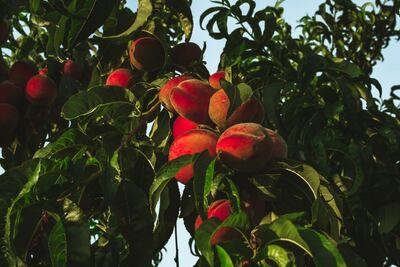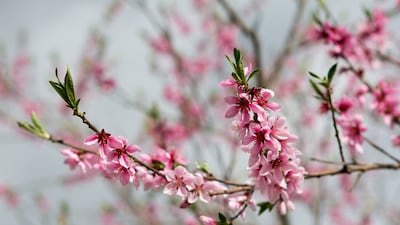A new artificial intelligence (AI) system can be used to predict crop yields up to six months before harvest, researchers say.
The tool counts flowers on fruit trees, which could help farmers to boost crop yields and improve their allocation of resources such as water and labour, and plan harvests and distribution.
The system, developed by researchers at the National Robotarium in Edinburgh, can accurately estimate the number of flowers on fruit trees from photos taken by a standard smartphone.
It recognises patterns and features, such as the edges and shapes of petals.
Trials in peach orchards in Spain showed the system was 90 per cent accurate in its estimates of the number of flowers, compared with counts done manually, which the researchers say have error rates of between 30 and 50 per cent.
“In countries all across the world, farmers often rely on manual methods to estimate their yields, which can have a significant error margin," said Fernando Auat Cheein, associate professor in autonomous systems at the National Robotarium.
“By leveraging the power of AI and the convenience of off-the-shelf technology like smartphones, our approach seamlessly integrates with traditional farming practices, making it easier for growers to embrace and benefit from innovative solutions without overhauling their existing methods.”
Mr Cheein said that during the trial in Spain, farmers “appreciated the simplicity and accuracy of the flower-counting AI and its potential to help them make more informed decisions about crop management, such as targeted pruning and herbicide application.”
“By focusing their efforts on areas of the farm that are expected to yield the most fruit, farmers can optimise resources, reduce their environmental footprint, and maximise both the quantity and quality of their harvest," he said.
The researchers will next compare the AI’s predictions with the actual peach harvest in September 2024.
If these turn out to be effective, they believe the approach could be adapted for crops such as apples, pears and cherries, benefitting fruit growers in Britain, Europe and beyond.

According to the researchers, agriculture uses about 65 per cent of the world’s fresh water, almost half of which is wasted, while each year about 45 per cent of fruit and vegetables produced for human consumption are lost or wasted.
The research project has been developed by academics and researchers from the National Robotarium, and the Federico Santa Maria Technical University and Universidad Andres Bello in Chile.
The National Robotarium is the UK’s centre for robotics and AI, and is part of the Data-Driven Innovation initiative, supported by £21 million ($26.6 million) from the UK government and £1.4 million from the Scottish government.
Its researchers collaborate with industry partners to develop solutions to the most pressing challenges facing the agriculture sector, from improving crop yields and quality to reducing environmental impact and enhancing sustainability.


